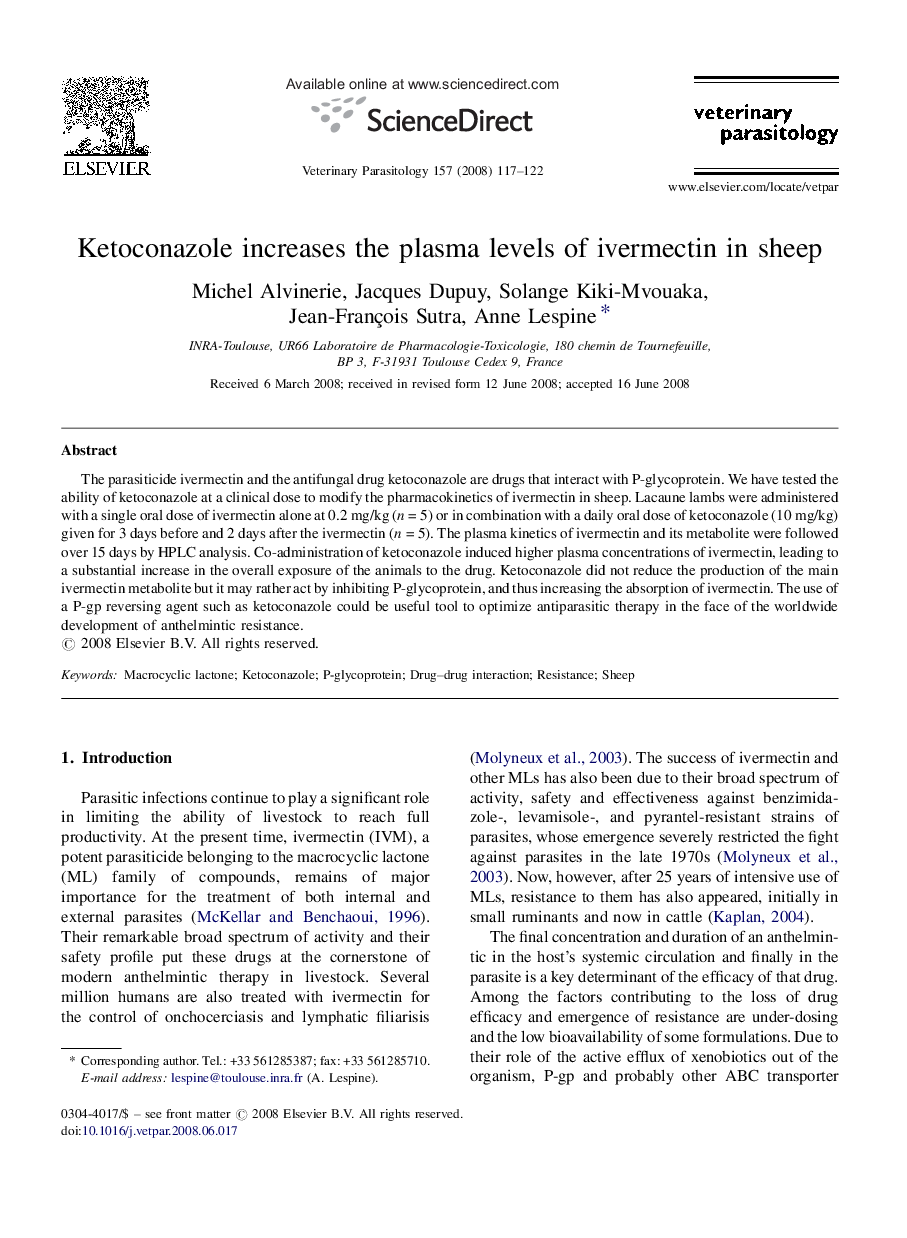| Article ID | Journal | Published Year | Pages | File Type |
|---|---|---|---|---|
| 2471369 | Veterinary Parasitology | 2008 | 6 Pages |
The parasiticide ivermectin and the antifungal drug ketoconazole are drugs that interact with P-glycoprotein. We have tested the ability of ketoconazole at a clinical dose to modify the pharmacokinetics of ivermectin in sheep. Lacaune lambs were administered with a single oral dose of ivermectin alone at 0.2 mg/kg (n = 5) or in combination with a daily oral dose of ketoconazole (10 mg/kg) given for 3 days before and 2 days after the ivermectin (n = 5). The plasma kinetics of ivermectin and its metabolite were followed over 15 days by HPLC analysis. Co-administration of ketoconazole induced higher plasma concentrations of ivermectin, leading to a substantial increase in the overall exposure of the animals to the drug. Ketoconazole did not reduce the production of the main ivermectin metabolite but it may rather act by inhibiting P-glycoprotein, and thus increasing the absorption of ivermectin. The use of a P-gp reversing agent such as ketoconazole could be useful tool to optimize antiparasitic therapy in the face of the worldwide development of anthelmintic resistance.
